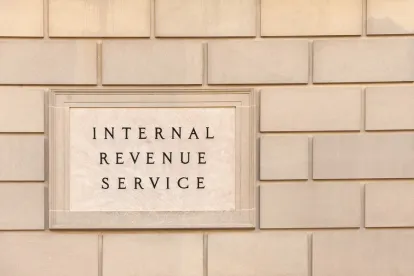In October 2020, the IRS issued two pieces of guidance addressing (1) the tax withholding and reporting of distributions from qualified retirement plans to state unclaimed property funds, and (2) the ability of taxpayers to roll over funds that were previously escheated to a state unclaimed property fund.
Withholding and Reporting of Payments from Qualified Plans to State Unclaimed Property Funds
Sponsors of qualified retirement plans often find themselves searching for missing or unresponsive participants or beneficiaries. If a participant remains missing after reasonable search efforts, the Department of Labor (DOL) permits plan sponsors to take several actions in the case of a terminating plan, including escheating the participant’s account balance to a state unclaimed property fund.
In recent years, stakeholders have pressed the IRS to issue guidance clarifying whether a qualified retirement plan must withhold federal income tax and report the distribution to the IRS when escheating a missing participant’s account balance to a state unclaimed property fund.
Rev. Rul. 2020-24 answers this in the affirmative. In the ruling, the IRS posits a hypothetical missing participant in a qualified retirement plan who has an accrued benefit of $900. After unsuccessfully attempting to locate the participant,* the employer (who also is the plan administrator) pays the participant’s accrued benefit to a state unclaimed property fund. The ruling provides that so long as certain rare exceptions do not apply, the payment is considered a “designated distribution” under section 3405 of the Internal Revenue Code (the Code). That, in turn, means the employer must (1) withhold federal income tax on the payment under Code § 3405(d), and (2) report the total amount of the distribution and the federal income tax withheld on Form 1099-R (so long as the distribution amount is more than de minimis).
The ruling takes effect with respect to payments made on or after the earlier of January 1, 2022, or the date it becomes reasonably practicable for the person to comply with the withholding and reporting requirements.
Self-Certifying Eligibility for Waiver of 60-Day Rollover Requirement
Separately, the IRS issued Rev. Proc. 2020-46, which adds distributions to state unclaimed property funds to the list of valid reasons for which an individual may request a waiver of the 60-day rollover deadline for distributions to qualified retirement plans. Specifically, if a taxpayer misses the 60-day rollover deadline, the taxpayer may self-certify to the plan administrator or IRA trustee that the taxpayer missed the deadline because the funds were distributed to a state unclaimed property fund. Provided that the taxpayer contributes the rollover as soon as practicable after the taxpayer obtains his or her unclaimed funds from the state, the plan administrator or IRA trustee can rely on the certification to show that the taxpayer meets the conditions for a waiver of the 60-day rollover requirement. However, the plan administrator or IRA trustee may not rely on the certification in determining whether the contribution satisfies other requirements for a valid rollover.
In accepting the rollover contribution, the plan administrator or IRA trustee may generally rely on the taxpayer’s self-certification unless the plan administrator has actual knowledge that is contrary to the self-certification.
* Note that the ruling does not actually express any opinion as to whether sufficient search measures were taken.




 />i
/>i

